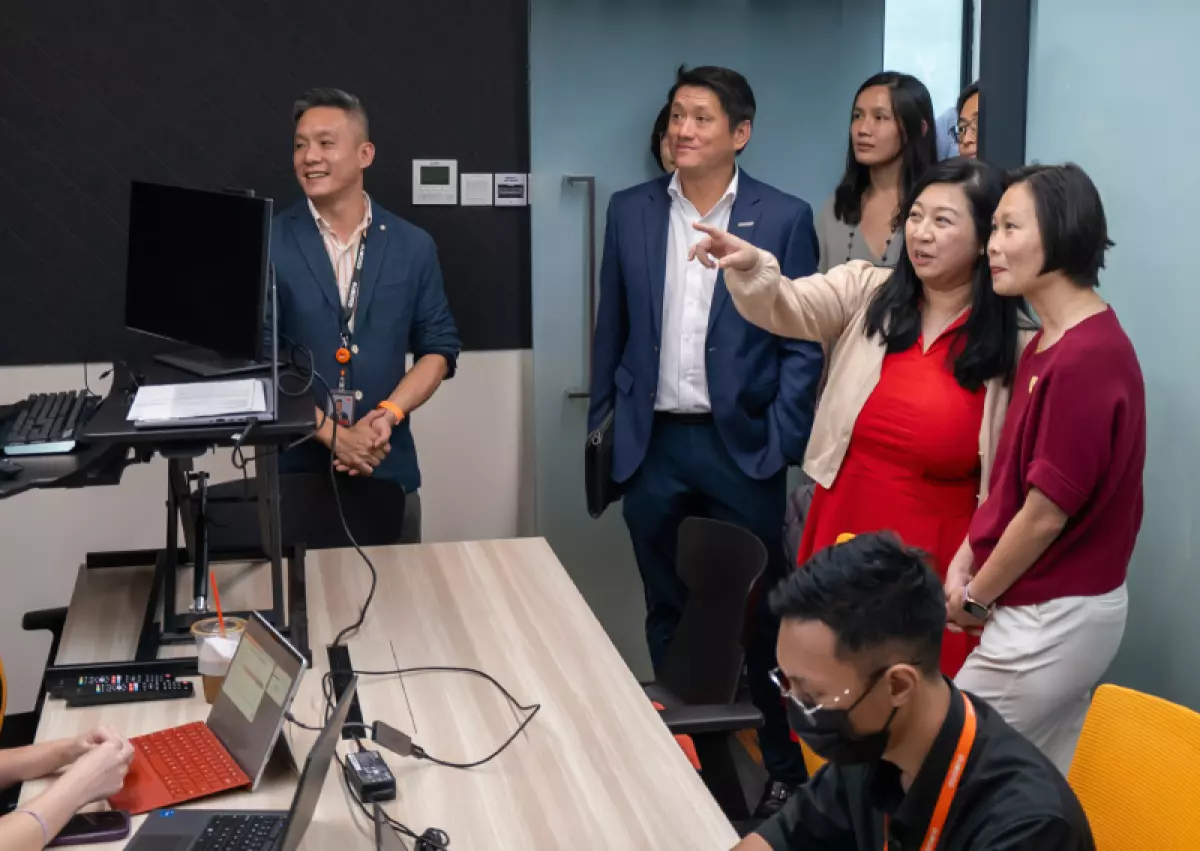 Image: Flexible Work Arrangements to be Normalised in Upcoming Guidelines - Gan Siow Huang
Image: Flexible Work Arrangements to be Normalised in Upcoming Guidelines - Gan Siow Huang
In today's fast-paced work environment, finding the perfect work-life balance can be challenging. However, Singapore is taking a step forward in normalizing flexible work arrangements (FWAs) through its upcoming guidelines. Minister of State for Manpower, Gan Siow Huang, emphasized the importance of these guidelines during a recent media visit. Let's explore how flexible work arrangements can benefit both employees and employers.
Embracing a New Work Culture
Many employees hesitate to request FWAs due to concerns about commitment to their jobs. However, Gan wants employees to understand that it is acceptable and easy to request flexible work arrangements when needed. She aims to create an environment where employees feel comfortable exploring FWAs that suit their unique needs.
On the other hand, employers may worry about potential dips in productivity. Nonetheless, Gan believes that employers can be creative and receptive to different types of FWAs. These arrangements can enhance recruitment efforts and improve talent retention in the long run.
Guideline Details and Support
The upcoming guidelines on FWAs will not only provide processes and templates for employers but also explore grants to support the implementation of FWAs. These grants can help companies acquire the necessary resources, such as IT or HR solutions, to facilitate FWAs. By simplifying the process and providing necessary support, the guidelines aim to encourage more companies to adopt FWAs.
Expanding Possibilities
Beyond the traditional understanding of FWAs, the new guidelines will also consider flexible timings and workloads. This broader approach is particularly relevant to caregivers, frontline workers, and shift employees. Gan emphasizes the importance of better work-life balance, especially for those with caregiving responsibilities. By adopting FWAs, employees can better manage their personal lives while staying committed to their careers.
Caregivers and the Preferred Way Forward
Yeo Wan Ling, from NTUC's women and family unit, reinforces the benefits of FWAs for caregivers. A survey conducted by NTUC revealed that nearly 90% of workers with caregiving responsibilities preferred FWAs as a means to remain in their jobs. FWAs provide a sustainable solution for balancing work and caregiving responsibilities.
A Leading Example
AsiaOne, a forward-thinking company, implemented a comprehensive FWA system for its employees in 2022. Each employee is allowed at least six days of flexible work arrangements every month, including flexi-load and flexi-time options. AsiaOne recognized that people are the heartbeat of the company and that everyone faces challenges at different points in their lives. By embracing FWAs, AsiaOne retains talent, maintains productivity, and supports its employees' changing needs.
The Benefits of Flexibility
Toh Lan Sze, the Director of Digital Campaigns Management at AsiaOne, shares her experience with the FWA system. The flexibility allows her to effectively manage both her work responsibilities and family commitments. With the ability to communicate with colleagues via Zoom, she can achieve a healthy work-life balance.
As we move forward, the introduction of the flexible work arrangements guidelines will create a more accessible and inclusive work environment. By embracing FWAs, both employees and employers can benefit from increased engagement, improved well-being, and higher productivity. Let's welcome this new era of flexibility in the workplace!
Note: The original article has been modified to enhance its clarity and flow while retaining the main idea and core message.

















